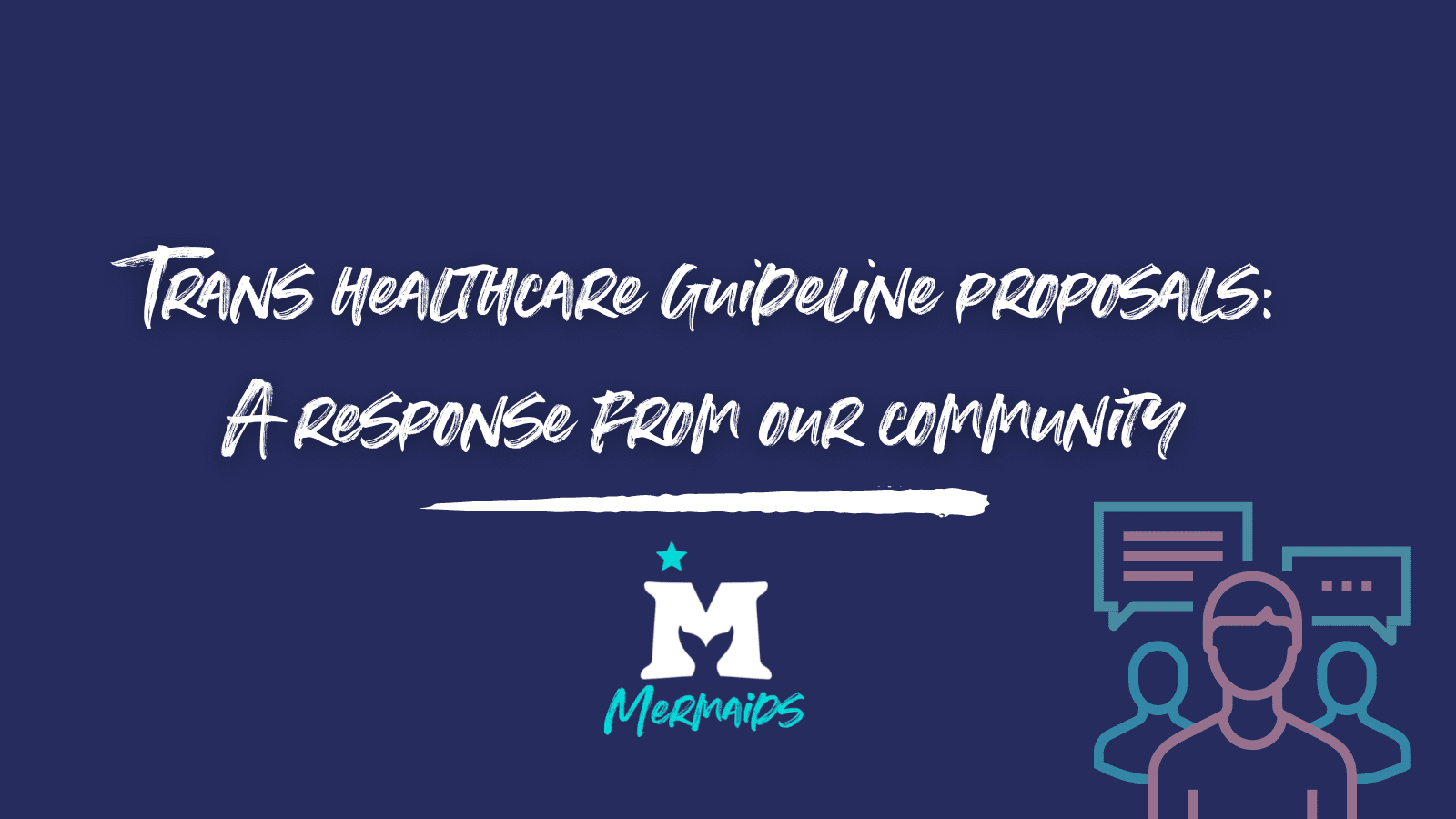
“It sounds like they are trying to stop trans youth existing”
This month, we published a blog summarising some of the proposed changes to the NHS healthcare services for young trans and gender-diverse people in England.
The new guidelines were met with anger and frustration by the young people and families we support, with those on our helplines and forums expressing deep concern about the implications to their future wellbeing.
In response, we held two online engagement sessions, one for trans and gender-diverse young people, and one for parents to listen to their views.
What struck us most was the message that, in their current form, the proposals categorically fail our communities. Participants strongly felt that NHS England appears committed to denying trans young people the right to be their authentic selves.
“Literally everyone transforms themselves socially in some way or another”: The right to socially transition
Under the new guidelines, clinicians are now advised to only consider supporting “social transition” – i.e. changing name, pronouns, clothing – if a young person experiences what is described as “clinically significant distress“.
There was shock amongst young people at this inclusion within the guidelines, who felt this is reflective of efforts to “medicalise” trans people. In other words, it opens up the possibility that a person will require permission from a doctor to dress how they please, and use their chosen name and pronouns.
As one young person remarked, social transition is “a thing that people should be allowed to do freely because people, even children, have bodily autonomy.”
Both parents and young people recognised the enormous benefits that social transition can bring to a child’s mental well-being, so far as to be life-saving for some.
There was bewilderment that someone could only access support if they reached the point of showing “significant” distress. “Why would they want young people to get to that point?” one young participant observed.
Rather than uplift and support trans youth, our participants felt the proposed changes deny them the right to express themselves as they choose – something one parent suggested could be seen as “conversion therapy”.
“I don’t think it’s about increasing the capacity to help more people”: The right to access care
Currently, young people can be waiting over three years to just have a first appointment with gender services.
Everyone we heard from felt it is a priority to urgently reduce the waiting lists but there was concern that the guidelines would create additional barriers and delays to care.
Under the proposals, a young person can only be referred to gender clinics via their GPs or NHS professionals. Both young people and parents shared negative stories from local doctors, with some having to deal with GPs with no knowledge of trans healthcare, while others had experienced outright hostility.
The requirement for an additional assessment stage before joining the waiting list will not only create further delays, but also risks retraumatising young people seeking healthcare.
One young person mentioned that the “whole process is a hoop-jumping and emotionally taxing exercise which is inevitably going to be a problem for those with additional needs” such as those who are neurodiverse.
This view was echoed by a parent who told us how her child had “already had to speak to 10 or 12 people” about their body. “Why should I force my child to traumatise themselves just to get medication?”
“Not acting is not neutral: hearing your children saying I am, you know, whatever gender they are, and doing nothing, that’s where you need to go to social services”: The right to be heard
These excessive delays and barriers are leading families, who can afford it, to seek out private healthcare for their young person.
The proposals encourage a GP to make a local safeguarding referral if a young person accesses medications through a private provider, putting families in the unenviable position of choosing between either listening to what their child wants and needs through private care, or being unable to access vital support from their GP.
Far from reducing possible harm to trans young people, the guidelines are a dereliction of the duty of care towards an already marginalised community.
Both young people and parents were very clear that the proposed changes reflect a complete lack of understanding of the experiences of trans people and those who support them. “If you are trans, or you have a loved trans person in your family, you get it. But if you don’t, you don’t. And that’s the problem” one parent told us.
We asked our young people if they could encourage the NHS to change one thing, what it be. “We know ourselves better than you ever will” was one response.
It’s time we started listening to, trusting and believing trans and gender-diverse young people and their supportive families, placing their needs front and centre in the design of new healthcare services.
These proposals are not final and we have produced guidance to help those wishing to take part in the consultation.
Regardless of the outcome, Mermaids will continue to campaign for a world where trans young people can thrive in every aspect of their lives.
